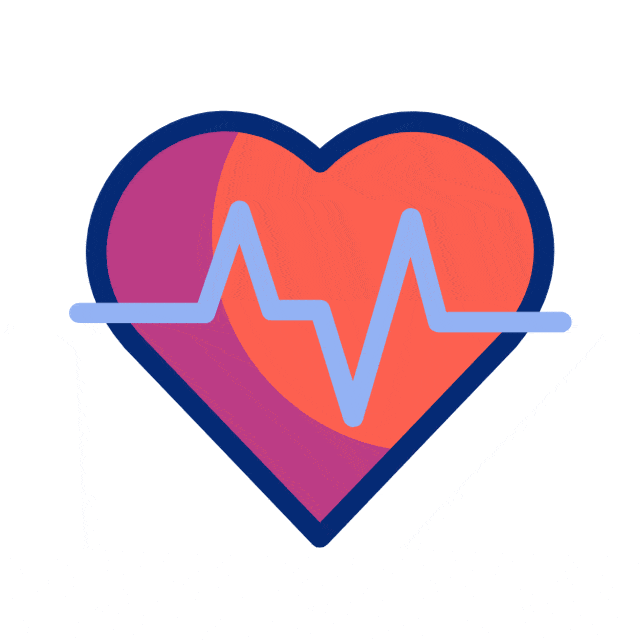Category : Healthcare
Most people can maintain a healthy life by exercising and eating right. However, it doesn’t mean they should only visit the doctor when they face any health issues. Regular health check-ups are essential for diagnosing any early signs of health problems and provide preventive care for managing various major health issues. It is the most effective way to receive the best care and maintain a healthier lifestyle. Therefore, it is highly recommended to have regular check-ups with your doctor at least once every year.
What are the benefits of a preventive health check-up?
There is not one but innumerable benefits of a regular preventive health check-up such as:
- Timely detection of potentially life-threatening health conditions or diseases. Let’s take an example of a heart attack, it may not be sudden and can happen due to gradual accumulation of cholesterol in the blood vessels. A preventive health check-up will provide information on cholesterol levels in the blood and enable you to make important changes in the lifestyle.
- It puts you at a lesser risk of getting sick.
- Increases chances for the right treatment and cure.
- Timely detection limits the risk of complications.
- Preventive health check-up can significantly improve life expectancy.
- Reduces healthcare costs over time. Preventive health check-up’s help in reducing sudden and unforeseen medical expenses. When a disease is detected at the initial stage, timely treatment can help manage it. A delayed detection can result in expensive treatment and prove fatal.
- Reminds you of the importance of a healthy lifestyle.
What are the tests covered in a preventive health check-up?
Preventive health checkup includes screening for various types of heart diseases, diabetes, metabolic disorders, liver conditions, kidney diseases, and other chronic conditions. Apart from screening, it also includes various tests to measure the level of cholesterol, blood sugar, and other important biomarkers in the blood.
The doctor uses this information to assess your risk of developing certain chronic conditions in the future.
You must choose an accredited laboratory that follows quality processes to carry out these diagnostic tests.
Some of the tests that make up a preventive health check-up are:
- CBC is the most commonly ordered blood test and is used to evaluate overall health, screen for a variety of disorders, or monitor an existing condition e.g. blood disorders. CBC test can help detect hundreds of conditions, disorders, and infections using a small amount of blood.
- Lipid Profile is a blood test used to assess the risk of developing cardiovascular disease (CVD) by measuring the amount and type of lipids (fats) in the blood. The doctor uses the results of the lipid profile test to assess the risk of heart disease and develop a plan of treatment. The test results may also be used to monitor the effectiveness of the treatment plan. The treatment plan may involve lifestyle changes such as diet and exercise or medications.
- Liver Function Test is used to detect, evaluate and monitor liver disorders as well as overall health of the liver.
- Kidney Function Test helps to evaluate the proper functioning of the kidneys.
- Blood sugar measures blood glucose levels to screen for prediabetes, diabetes, or gestational diabetes and monitor the efficacy of medications or lifestyle changes for diabetic people.
- Thyroid Profile measures T3, T4, and TSH levels in the body and evaluates thyroid function. High levels of thyroid hormones in the blood can cause symptoms such as weight loss, anxiety, muscle weakness, racing heart, or heat intolerance whereas low levels of thyroid hormones in the blood can cause symptoms such as weight gain, fatigue, enlarged thyroid gland, irregular menstrual periods, cold intolerance, or depression.
- ECG helps in determining the heart rate and uniformity of heartbeat.
- Ultrasonography helps assess the structures in the abdomen such as the spleen, gallbladder, liver, pancreas, and kidneys.
- Chest x-ray helps in assessing the chest and the organs located in the area
- Urine examination helps in the general assessment of health in terms of systemic or metabolic diseases along with kidney diseases.
- Echocardiogram (ECHO) is a graphic outline of your heart’s movement. During an echo test, your healthcare provider uses ultrasound (high-frequency sound waves) from a hand-held wand placed on your chest to take pictures of your heart’s valves and chambers. This helps the provider evaluate the pumping action of your heart.
- Vitamin D 25-Hydroxy measures the level of Vitamin D in the blood. This test is useful for the diagnosis of Vitamin D deficiency and Hypervitaminosis D. It is also used for diagnosis of causes of Rickets & Osteomalacia and for monitoring Vitamin D replacement therapy.( Done on Doctors advice )
- Vitamin B12; Cyanocobalamin measures the concentration of Vitamin B12 in blood. It determines a deficiency or lower than normal blood levels of Vitamin B12 in the body.( Done on Doctors advice)
As we have seen, preventive health check-ups are very important to diagnose a medical condition before it becomes serious. Book a preventive health check-up package today.
For more information on JSS Hospital Preventive health check-up Packages kindly visit MHC ( Master Health Check-up area) at 2nd floor or call at 0821 233 5505.





